For more than 100 days now, people in the once-lovely town of Portland, Oregon have been rioting, burning, looting, vandalizing, terrorizing and protesting in the name of “social justice.” Nothing they have done upsets me more than unceremoniously toppling a statue of George  Washington outside the German American Society headquarters on June 19. The Stars and Stripes was put over the head of the father of our country and set on fire before the statue—erected in 1926—came crashing down as the mob hooted, cheered and chanted OBLM slogans. One person used red spray paint to identify Washington, who was White, as a “genocidal colonialist.” All this was done with the tacit approval of Mayor Ted Wheeler and his far-left city council.
Washington outside the German American Society headquarters on June 19. The Stars and Stripes was put over the head of the father of our country and set on fire before the statue—erected in 1926—came crashing down as the mob hooted, cheered and chanted OBLM slogans. One person used red spray paint to identify Washington, who was White, as a “genocidal colonialist.” All this was done with the tacit approval of Mayor Ted Wheeler and his far-left city council.
It pains me to think this happened and that nobody stood and offered resistance. The least I can do, now that the mindless criminal act has been carried out, is to offer an even-handed assessment of Washington.
Leaving aside the issue of whether he did or did not chop down the cherry tree and did or did not admit it to his father, I will state some of his imperfections. The most egregious is that he was a slave master. When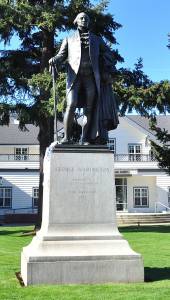 Washington died in 1799, he and his wife Martha ruled over 317 men, women and children of African descent at their Mount Vernon, Virginia estate. They raised tobacco and wheat, caught fish, ran his distillery, laundered clothes, prepared meals, waited on guests and toiled in other ways without financial remuneration. There is evidence that he was relatively mild in his treatment of them. Sometimes “correction” was administered in the form of the lash—whether by Washington or his hired overseer, I am not sure. Obviously, it was hypocritical for Washington to speak about liberty and yet to hold some of his fellow human beings in bondage.
Washington died in 1799, he and his wife Martha ruled over 317 men, women and children of African descent at their Mount Vernon, Virginia estate. They raised tobacco and wheat, caught fish, ran his distillery, laundered clothes, prepared meals, waited on guests and toiled in other ways without financial remuneration. There is evidence that he was relatively mild in his treatment of them. Sometimes “correction” was administered in the form of the lash—whether by Washington or his hired overseer, I am not sure. Obviously, it was hypocritical for Washington to speak about liberty and yet to hold some of his fellow human beings in bondage.
The early Virginians were staggeringly greedy; the colony’s original charter specified its western boundary as the Pacific Ocean. While part and parcel of the Old Dominion’s society, Washington was no top-shelf aristocrat. Rapacious for real estate, he spent much of his life buying and flat-out taking land that had been Indian “property” for countless generations. He led Virginia’s militia in skirmishes and battles with the natives, learning a lot about military and political strategy in the process.
He precipitated the French and Indian War at age 22, and as president badly mishandled the Whiskey Rebellion in western Pennsylvania. Washington’s older brother Lawrence boosted his career a couple of times before he became famous, but a little nepotism never hurt anybody—right?
Washington was a three-dimensional person with his share of faults, but it is not hard to enumerate his qualities and achievements. With an estimated 900 books and 6,000 articles written about him, I have plenty of sources to choose from. Largely self-educated, he was the central 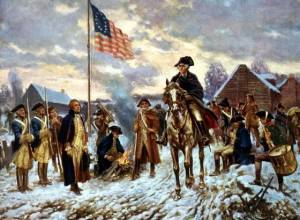 figure in America’s Revolutionary War. He rather reluctantly accepted leadership of a bunch of ragtag militias with men hailing from Georgia to Maine and turned them into a real army.
figure in America’s Revolutionary War. He rather reluctantly accepted leadership of a bunch of ragtag militias with men hailing from Georgia to Maine and turned them into a real army.
They lost some battles early on, and spirits sagged. A lot of people were sitting on the fence, waiting to see whether the patriots could outlast the British and their Hessian mercenaries. Money and materiel were scarce, but Washington held his army together in hard times. He suffered along with his men at Valley Forge, and they loved him for it. Finally, major victories were scored at Boston, Trenton (made possible by an audacious crossing of the ice-choked Delaware River on Christmas day 1776), Princeton and Monmouth. Washington displayed enormous courage on the battlefield, never flinching when a musket or cannon was pointed at him. Time and again, he rose to the occasion. Washington proved himself more than equal to William Howe, Henry Clinton and Charles Cornwallis, British generals who initially scoffed at the tall (6′ 3″) Virginian.
The redcoats capitulated at Yorktown in 1781, a treaty was signed two years later and they headed back across the Atlantic. It was a crucial time, as Washington could have convinced himself that he had the right to hold the power he had accrued. Some people urged him to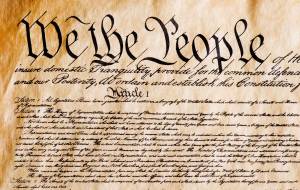 become a sort of American king, but he refused and returned to Mount Vernon to be George Washington, Esq,
become a sort of American king, but he refused and returned to Mount Vernon to be George Washington, Esq,
It was not long before he was called back to service—presiding over the Constitutional Convention of 1787. The U.S. Constitution was and still is a magnificent document. James Madison crafted it, with help from Alexander Hamilton and others, but Washington kept the 55 delegates on the same page and moved things forward. It set the framework for a government meant to serve its citizens (notwithstanding the fact that two million of them were still enslaved, mostly in the South), with a careful balance among executive, judicial and legislative branches.
Back to Mount Vernon he went, only to be informed that his colleagues had unanimously chosen him as the country’s first president. It was not false modesty on Washington’s part when he insisted he was ill-suited for the job, but 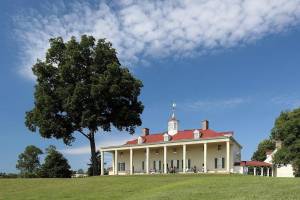 duty compelled him to accept. He lived in New York City and Philadelphia, the first two American capitals, between his inauguration on April 30, 1789 and his farewell on March 4, 1797. (He served two four-year terms.) Faced with a gargantuan task or a whole series of them, he did well according to presidential historians. Every ranking I have seen has Washington in the top four.
duty compelled him to accept. He lived in New York City and Philadelphia, the first two American capitals, between his inauguration on April 30, 1789 and his farewell on March 4, 1797. (He served two four-year terms.) Faced with a gargantuan task or a whole series of them, he did well according to presidential historians. Every ranking I have seen has Washington in the top four.
Never lacking gravitas, Washington was livelier than we sometimes think of him. He danced and enjoyed the company of women. Sure, he had political enemies and people who sought to undermine his efforts or belittle him. But his integrity was beyond question. Nobody could legitimately claim that George Washington 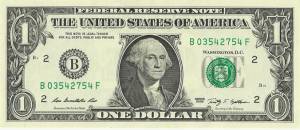 was corrupt. When 1797 rolled around, he was urged to stay for a third term. He declined and headed back to Mount Vernon. He voluntarily stepped down! How rare is that? Well, consider that Julius Caesar, Oliver Cromwell, Napoleon Bonaparte, Santa Anna, Vladimir Lenin, Mao Zedong and Park Chung-hee all seized power and held it until they died or suffered a military defeat. By doing so, Washington demonstrated in the most tangible way that this was a republican form of government.
was corrupt. When 1797 rolled around, he was urged to stay for a third term. He declined and headed back to Mount Vernon. He voluntarily stepped down! How rare is that? Well, consider that Julius Caesar, Oliver Cromwell, Napoleon Bonaparte, Santa Anna, Vladimir Lenin, Mao Zedong and Park Chung-hee all seized power and held it until they died or suffered a military defeat. By doing so, Washington demonstrated in the most tangible way that this was a republican form of government.
Washington’s selfless leadership still inspires Americans and people all over the 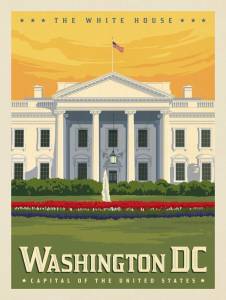 world. It is no wonder that the German American Society of Portland decided 94 years ago to erect a statue in honor of this faithful public servant and exemplary patriot. The OBLM people who defaced it and tore it down on June 19, with their paper-thin understanding of history, would do well to reassess their frenzied behavior. They destroyed a statue—along with hundreds of others in these last few months—and it appears that they also seek to destroy precious institutions that were not easily or quickly built. Washington’s face justifiably adorns the $1 bill, and the nation’s capital, a state, a New York City bridge and numerous educational institutions are named after him; he is enshrined at the Washington Monument and Mount Rushmore.
world. It is no wonder that the German American Society of Portland decided 94 years ago to erect a statue in honor of this faithful public servant and exemplary patriot. The OBLM people who defaced it and tore it down on June 19, with their paper-thin understanding of history, would do well to reassess their frenzied behavior. They destroyed a statue—along with hundreds of others in these last few months—and it appears that they also seek to destroy precious institutions that were not easily or quickly built. Washington’s face justifiably adorns the $1 bill, and the nation’s capital, a state, a New York City bridge and numerous educational institutions are named after him; he is enshrined at the Washington Monument and Mount Rushmore.
Let’s hope that next February, all of those cancel-culture fools will travel 2,144 miles to Laredo, Texas. There they can be among the 400,000 or so people who gather every year to celebrate Washington’s birthday. All right, it has evolved into a set of fairly cheesy events. But that city, founded in 1755 when Washington was a young military officer, is home to people who know of and appreciate his monumental achievements. Give me Laredo over Portland any day.

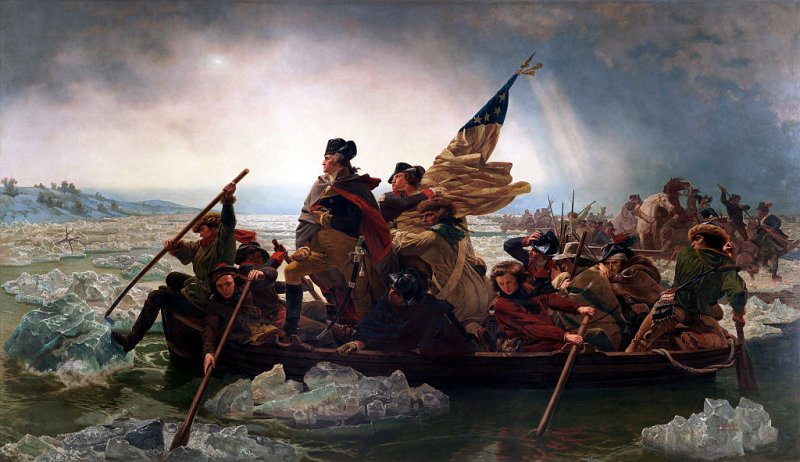
2 Comments
President Washington is a proof of human imperfections. Having a large numbers of slaves yet a great leader who has the decency to choose to stepped down even if he can still run for another term at the office. What happened to USA these past days is unbelievable. Yes, we can protest to claim and express our rights but we can also do it in a peaceful way. I hope that these people will realize that “a mistake cannot be corrected by another mistake.”
You are so right, Andrea. Washington was not perfect, and yet what he did was so very great. By the way, I have written to the German American Society of Portland and asked them about this sad situation. Will they replace the statue of the father of our country?
Add Comment